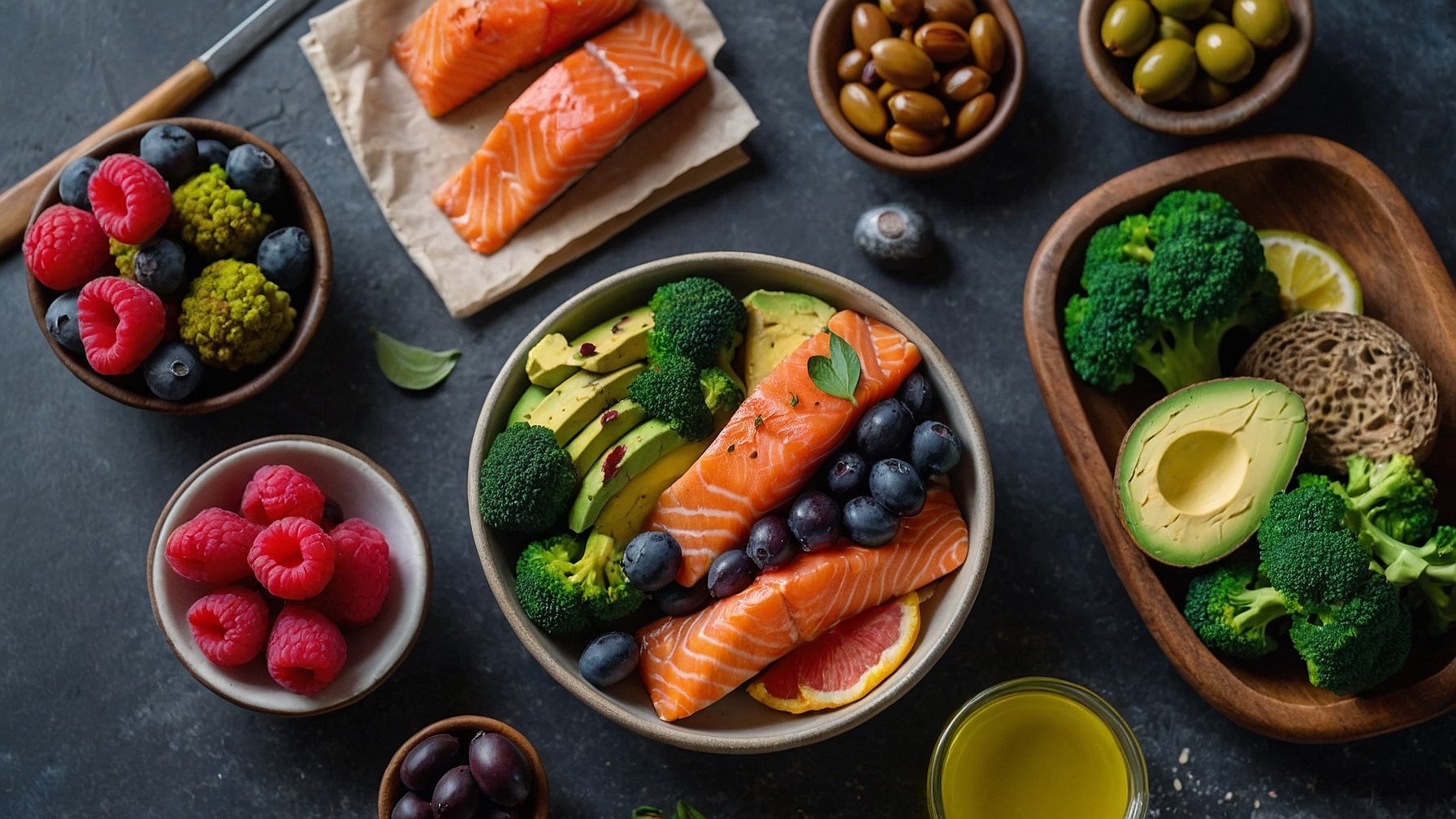Inflammation is a natural response that helps our bodies heal after injury or fight off infections. However, chronic inflammation can contribute to a variety of illnesses, including heart disease, diabetes, arthritis, and certain cancers. Many experts believe that diet plays a crucial role in managing inflammation. An anti-inflammatory diet focuses on foods that can reduce inflammation and promote overall health. While medications and therapies are available, dietary strategies offer a natural way to support your body from within. Understanding which foods fight inflammation empowers you to make changes that can have a lasting impact on your health.
What Is Inflammation?
Inflammation involves the activation of our immune system. In the short term, it is protective, leading to redness, heat, and swelling that signal healing processes. Chronic inflammation, on the other hand, occurs when the immune system remains active over time. This persistent state can damage healthy tissues, disrupt normal cell function, and contribute to chronic diseases. Diet is one of several factors that influence inflammation, alongside stress, sleep, and exercise.
What Is an Anti-Inflammatory Diet?
An anti-inflammatory diet is one that prioritizes foods known to lower inflammation and minimizes foods that can trigger or worsen it. This diet emphasizes whole, unprocessed foods, rich in nutrients and antioxidants. It is flexible enough to adapt to individual preferences and cultural traditions while focusing on ingredients that support health and healing.
Key Foods to Include
-
Fruits and Vegetables: Brightly colored produce like berries, cherries, spinach, kale, and broccoli are rich in antioxidants and anti-inflammatory compounds.
-
Healthy Fats: Foods such as avocados, nuts, seeds, and olive oil provide monounsaturated and polyunsaturated fats that help reduce inflammation.
-
Fatty Fish: Salmon, mackerel, sardines, and trout are high in omega-3 fatty acids, which have powerful anti-inflammatory effects.
-
Whole Grains: Brown rice, quinoa, oats, and whole wheat contain fiber and nutrients that support gut health and lower inflammatory markers.
-
Legumes: Beans, lentils, and chickpeas offer protein, fiber, and antioxidants without unhealthy fats.
-
Herbs and Spices: Turmeric, ginger, garlic, and cinnamon provide compounds that inhibit inflammation and are widely available.
Foods to Avoid
Highly processed foods, fast food, sugary drinks, and refined carbohydrates can promote inflammation. Red and processed meats, excessive alcohol, and trans fats found in some margarines and packaged snacks are also best limited or avoided.
Benefits of an Anti-Inflammatory Diet
Adopting an anti-inflammatory diet can offer a range of health benefits:
-
Improved Heart Health: Lower levels of inflammation can reduce the risk of heart disease and improve cholesterol levels.
-
Better Blood Sugar Control: Stabilized blood sugar levels can help prevent or manage type 2 diabetes.
-
Reduced Joint Pain: Lower inflammation can ease symptoms for those with arthritis and other joint conditions.
-
Enhanced Brain Health: Anti-inflammatory foods may support cognitive function and lower the risk of neurodegenerative diseases.
-
Greater Energy and Vitality: Nutrient-rich foods can improve overall energy levels and support a healthier immune system.
How to Get Started
Begin by adding more whole foods to your meals and snacks. Try replacing sugary drinks with water or herbal tea and swap refined grains for whole grains. Experiment with cooking methods such as roasting or steaming vegetables and using herbs and spices instead of salt. Plan meals in advance, shop with a grocery list, and gradually phase out foods that trigger inflammation. Keeping a food journal can help you track your progress and identify patterns.
Practical Tips and Considerations
-
Meal Planning: Set aside time each week to plan and prep meals. Batch cook grains and proteins to save time.
-
Mindful Eating: Pay attention to hunger and fullness cues and enjoy meals without distractions.
-
Balance and Variety: Aim for a colorful plate with a mix of fruits, vegetables, proteins, and healthy fats.
-
Consult a Professional: If you have existing health conditions, work with a registered dietitian or healthcare provider for personalized advice.
Conclusion
An anti-inflammatory diet is a sustainable and adaptable approach to reducing chronic inflammation and lowering the risk of illness. By choosing nutrient-dense, whole foods and limiting processed ingredients, you can support your body’s natural healing processes. Start small, make gradual changes, and enjoy the benefits of a diet that promotes long-term health and wellness.





